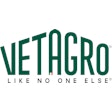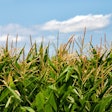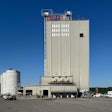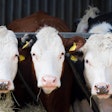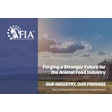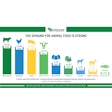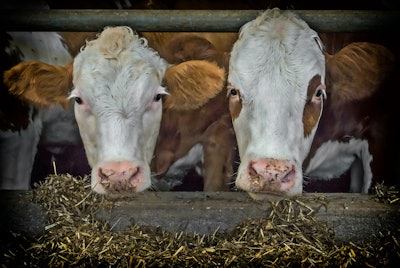
As 2024 begins, Hamlet Protein's CEO Erik Visser talks about key market drivers and developments in hisMarket Outlook video interview. Visser talks about the new opportunities for the animal feed industry , what Hamlet Protein is focusing on and potential challenges in 2024. As we look ahead, it is important to understand the key market drivers and developments that will shape the industry's growth.
Market Outlook
Animal protein production and the production of animal feed will continue to grow in 2024, albeit at a slower pace. While the overall trend is positive, there are variations across different regions and species. In mature markets like Europe and North America, growth is expected to be more limited compared to the vibrant markets in South America and Asia. These emerging markets are better positioned for growth due to factors such as increasing consumer spending and favorable economic conditions.
Europe is experiencing a strong impact from regulations that affect the entire supply chain, including the number of animals reared, environmental conditions on farms, and the supply of raw materials. While poultry consumption is expected to grow in Europe, there may be a decline in beef and pork consumption. On the other hand, Asian economies, particularly China, face pressure that affects consumer spending. Poultry consumption is expected to grow in China, while other Asian regions may see growth in pork consumption.
In North America, there is pressure on mono-gastric numbers, which is expected to continue in 2024. The growth of the Mexican market is closely tied to the US, both in terms of the supply of feed and consumption of animal protein. Canada relies on US consumption for its pork exports, while the US looks to Canada for poultry export potential. In South America, Brazil stands out as a powerhouse, with growth opportunities driven by export opportunities. Chinese demand plays a crucial role in sales opportunities for pork, while poultry exports depend on the US market position.
Feed costs
A healthy supply chain is crucial for all market segments to generate a healthy profit. The cost of production is heavily influenced by feed costs, which make up approximately 75% of the total cost. Animal protein producers closely monitor global feed commodity prices, especially for corn, soy, and wheat. Several factors can impact feed costs, including natural phenomena like El Niño, geopolitical conflicts affecting exports, and regulations on supply chains. In 2023, feed costs have come down, and this trend is expected to continue in 2024. Similarly, freight costs have also decreased, contributing to overall cost reduction.
ESG regulation
Sustainability has become a major focus for consumers and governments alike. It has transitioned from being a nice-to-have aspect of corporate strategies to a necessity for obtaining a license to operate. Companies are expected to take responsibility for their impact on the environment, climate, and human rights throughout their entire value chain. ESG (Environmental, Social, and Governance) regulations are being implemented globally, with Europe taking the lead. Compliance with these regulations will require significant investment in time and money, potentially leading to inflationary effects that need to be considered in pricing strategies.
In addition to government-led regulations, a range of voluntary industry standards has emerged. While some standards align with regulatory requirements, others are driven by local interests. However, not all standards have an objective way of measuring impact. Companies across the value chain must manage compliance and effectively communicate their efforts to meet these standards. Collaboration among industry players is crucial to meet the evolving requirements and ensure a sustainable future for the animal feed industry.
Animal diseases
African Swine Fever (ASF) and Avian Influenza (HPAI) continue to present significant challenges for animal protein producers in 2024. These diseases have the potential to impact feed volumes and create uncertainty in the industry. In 2023, swine numbers in Asia were greatly reduced due to ASF, and its effects will continue to be felt in 2024. Without a scientifically proven vaccination, ASF poses a significant threat, especially in regions with underdeveloped biosecurity and farm management practices. As a result of ASF, small operations and backyard farming may disappear, leading to further consolidation in affected markets. European swine producers are committed to supporting efforts to control ASF, which continues to emerge in wild boars across the continent.
While ASF remains a concern, Avian Influenza outbreaks are also expected to occur worldwide. Brazil, as the largest poultry exporter, will be closely watched for any outbreaks. Maintaining strong biosecurity measures is essential to prevent the spread of these diseases and protect the global animal protein industry.
Geo-politics
The year 2024 will be politically significant, with elections taking place in many countries that collectively represent half the world's population. Political changes can have a profound influence on policies, institutions, and global relationships. For the animal feed industry, stability, clear policy-making, and the free flow of goods and people are essential for businesses to thrive. Confidence in the market allows entrepreneurs and investors to make strategic investments for growth. Friendly and stable relationships between countries are crucial for export businesses to compete on quality and service.
Labor
Industrialized markets are expected to face a tight labor market in 2024, putting pressure on salary levels and the ability to recruit and retain talent. This labor shortage will have implications for the execution of strategic plans across the industry. Additionally, changes in political landscapes may result in further pressure on immigration, leading to potential disruptions in labor-intensive segments such as farming and processing.
To address these challenges, the animal protein and animal nutrition industries must focus on attracting young professionals and students to careers in these sectors. Employer branding and defining a clear purpose that aligns with the values of new hires can make these industries more appealing. Feeding a growing world population in a sustainable manner offers numerous opportunities for impactful messaging and engaging the workforce of the future.
Hamlet Protein's 2024 goals
Hamlet Protein has a significant role to play in the animal feed industry in 2024. As the use of medication declines and the use of antibiotic growth promoters is banned in many countries, the focus on specialties for young animal nutrition is expected to grow. Hamlet Protein has established a global leadership position in this area and will leverage its expertise to increase presence in key markets, particularly in swine, poultry, and ruminants.
The market for Specialty Soy Protein (SSP), Hamlet Protein's primary product, is estimated to be 1.6 million metric tons, with an average annual growth rate of 3% to 4%. This growth is driven by macro-economic factors such as a growing world population, increased regulations, and market consolidation. Hamlet Protein aims to capture a larger share of the animal protein diet sources, including plasma and fish meal, to further increase its volumes.
Additionally, Hamlet Protein has conducted research in collaboration with renowned universities on protein kinetics. Their findings demonstrate that Hamlet Protein provides the fastest protein source available in the market. This valuable research will be shared with producers, enabling them to formulate more efficient diets and optimize animal performance.
Sustainability is at the core of Hamlet Protein's strategy. The company has developed a clear roadmap to comply with existing and newly introduced ESG regulations and industry standards. Collaboration with suppliers and customers is crucial in creating a sustainable supply chain at all levels. Hamlet Protein will continue to invest in bringing the best solutions for early-life nutrition to the market, focusing on technical and commercial talent, plant efficiency, and close collaboration with business partners.






